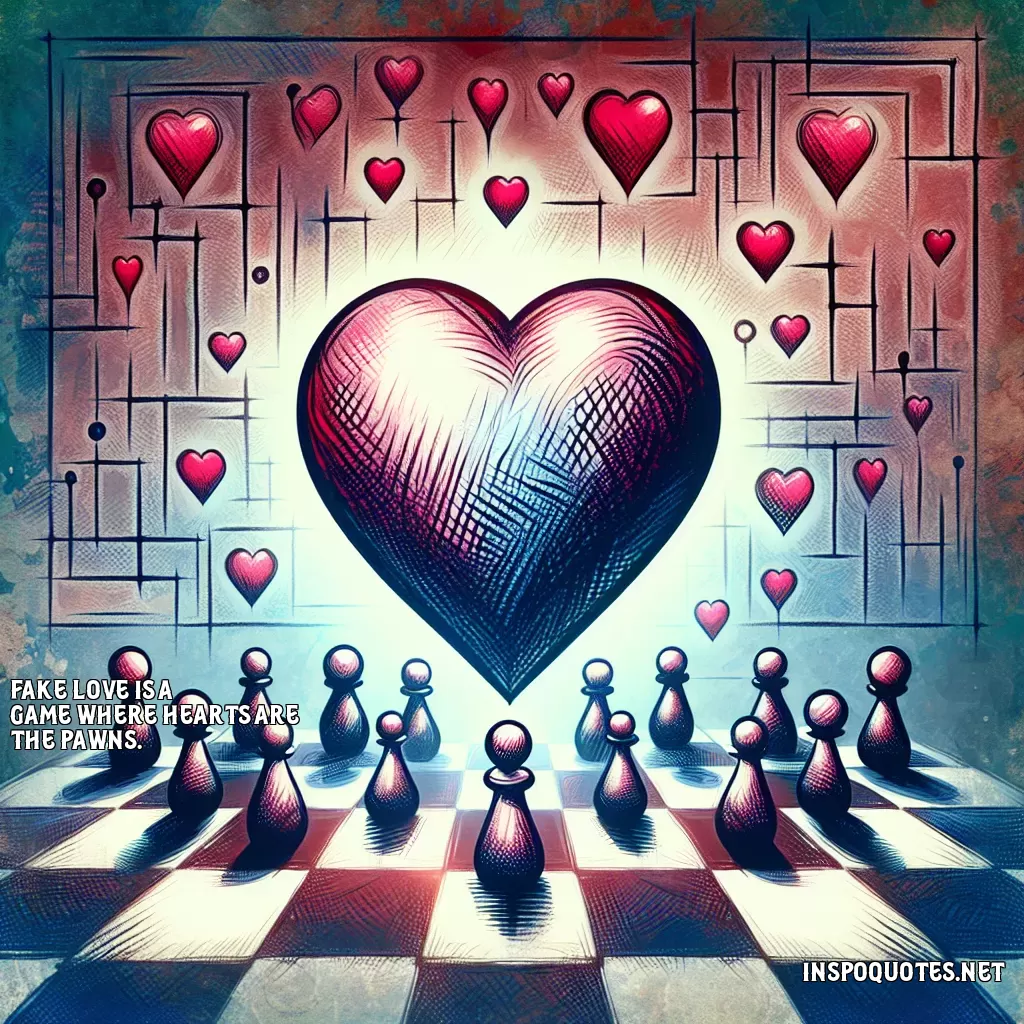
Fake love is a game where hearts are the pawns.
Author: Khaled Hosseini
👁️ 10 views
The quote "Fake love is a game where hearts are the pawns" uses the metaphor of a game to describe the dynamics and consequences of insincere or disingenuous romantic relationships. In any game, players maneuver pieces or employ strategies to reach a certain goal, often aiming to win or gain an advantage over others. Here, the ‘game’ is the act of pretending or feigning love, where individuals might manipulate emotions for their own benefit, whether it be for power, control, financial gain, or social status. The term 'fake love' implies a lack of genuine affection or emotional depth. It's a façade, an illusion of love without real commitment or vulnerability. Individuals who engage in fake love may be more interested in what they can gain from the relationship than in the well-being or happiness of their partner. They might play with the emotions of others as one would move pawns on a chessboard—strategically, but without real care for the pieces themselves. In this game, hearts represent the emotional and vulnerable aspects of the people involved. Calling hearts ‘pawns’ suggests that the individuals involved in fake love are often used and sacrificed as mere tools or objects, much like pawns can be in a game of chess. Pawns are typically the least powerful pieces in chess, easily sacrificed for the sake of a broader strategy. This implies that in the pursuit of personal agendas, the emotional well-being of others is often compromised or disregarded. In this context, hearts being used as pawns highlights the potential for emotional harm, manipulation, and the lack of genuine connection. It underscores the ethical and emotional irresponsibility of treating a relationship like a strategic game rather than a mutual bond built on trust and authenticity.
Quote By: Khaled Hosseini
Khaled Hosseini is an Afghan-American author and physician, best known for his debut novel, "The Kite Runner," published in 2003, which explores themes of friendship, betrayal, and redemption against the backdrop of Afghanistan's tumultuous history. Born in Kabul in 1965, Hosseini and his family fled to the United States in 1980 due to the Soviet invasion of Afghanistan. His subsequent works, including "A Thousand Splendid Suns" and "And the Mountains Echoed," further solidified his reputation as a powerful storyteller and advocate for Afghan culture and humanitarian causes.
Bio added on: 2025-02-17 20:23:21